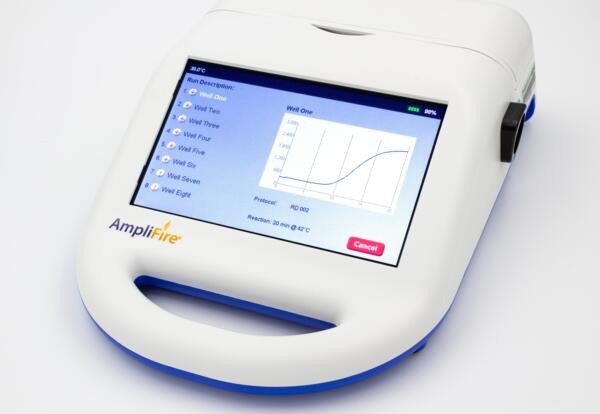Tomato brown rugose fruit virus (ToBRFV) emerged as a significant threat to tomato crops in 2015, breaking resistance in production cultivars. In response, Agdia, a provider of plant pathogen diagnostic solutions, has developed and validated three commercial assays to detect ToBRFV effectively. These assays, namely ELISA, ImmunoStrip, and AmplifyRP XRT, offer different testing options for laboratory and field screenings. Now, the research behind these options was published.
The ToBRFV ELISA assay employs monoclonal antibodies and is designed for high-throughput testing in laboratory settings. It serves as a valuable tool for researchers and diagnosticians to quickly and accurately identify the presence of the virus in large sample sizes.
For field screenings, Agdia offers the ToBRFV ImmunoStrip, a serological lateral flow device. This user-friendly tool utilizes monoclonal antibodies to provide rapid and on-site detection of ToBRFV. It enables growers and field workers to swiftly assess the virus's presence and take appropriate action to mitigate its spread.
Additionally, Agdia developed the ToBRFV XRT, a molecular method that combines recombinase polymerase amplification with high sensitivity. This hybrid tool offers the convenience of both field screening and laboratory analysis, providing PCR-like accuracy in detecting ToBRFV. With an analytical sensitivity of 15 fg/µl, the XRT assay ensures reliable and precise results.
All three assays—ELISA, ImmunoStrip, and XRT—have been thoroughly evaluated to meet the necessary performance criteria for accurate detection. The ELISA and ImmunoStrip demonstrate analytical sensitivity ranging from 64 to 320 pg/ml, with broad specificity that includes all tested ToBRFV isolates. They also exhibit cross-reactions to related viruses like tobacco mosaic virus, tomato mosaic virus, and tomato mottle mosaic virus.
On the other hand, the XRT assay shows exceptional analytical specificity, specifically designed to avoid cross-reactions with other viruses. Its sensitivity is remarkable, with the ability to detect ToBRFV at levels as low as 15 fg/µl.

Crucially, all three assays achieve a diagnostic sensitivity and specificity of 100%, ensuring accurate and reliable results. Agdia recognizes the importance of providing trustworthy diagnostic and analytical data to support diagnosticians, researchers, and breeders in their work. Proper validation of these assays is critical to prevent false results and reporting, safeguarding the integrity of plant pathogen diagnostics.
Click here for the complete research.
For more information:
Agd ia
ia
52642 County Road 1
Elkhart, IN 46514
Tel.: 1-574-264-2615
Fax: 1-574-264-2153
[email protected]
www.agdia.com
